
You can also access and download this image from our Google Drive folder. If you do use the image, attribution to the-unwinder.com would be greatly appreciated. A text version of this infographic is available at the end of the article.
Best Alcohol Alternatives At A Glance
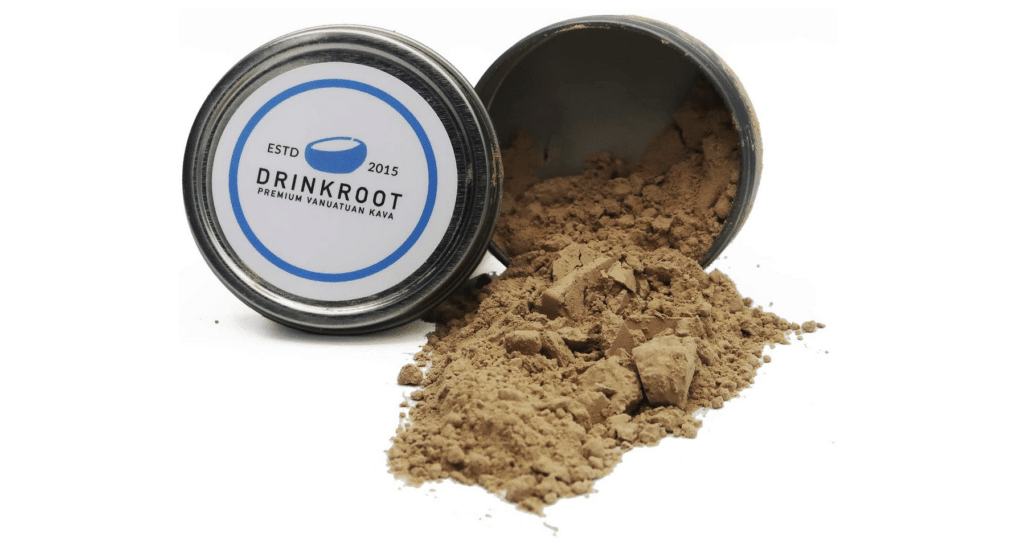
Sedative And Euphoric Effects
Drink Root Instant Connoisseur Blend
Drinkroot is a brewed kava juice, filtered, and dehydrated to an extremely low moisture content. This creates a very stable high kavalactone concentration of kava juice and is super easy to use. Just add water.
Editor’s note 5/28/22: This product is currently sold out. We will update this review as soon as it becomes available. In the meantime, we recommend purchasing this product in packet form HERE.
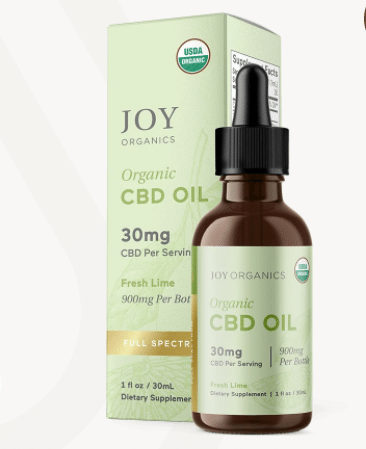
Has Anti-Anxiety, Anti-Pain, Anti-Depressant Properties
Joy Organics Full Spectrum CBD
CBD (or “cannabidiol”, a non-psychoactive part of the cannabis plant) helps balance the mind-body axis and has anti-anxiety, anti-pain, and anti-depressant properties.
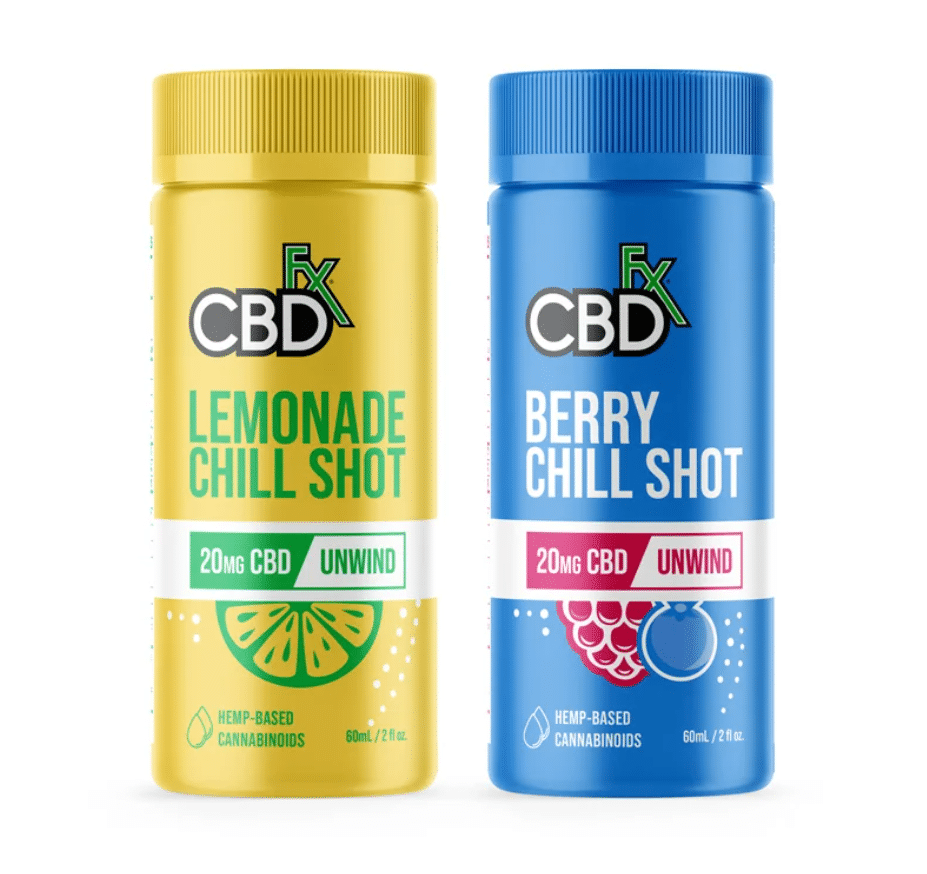
Great For Relaxation
CBDfx CBD Chill Shots 20mg
CBD Chill Shots contain 20 mg of broad-spectrum CBD along with 200 mg of L-theanine and vitamin B6, magnesium, and zinc to help relax your mind and body.
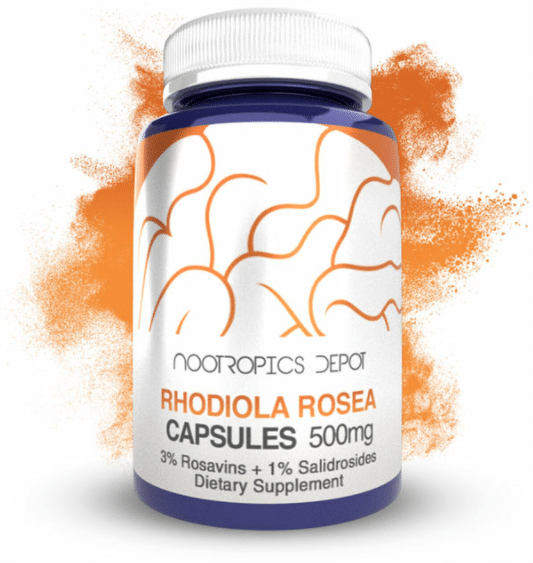
Stress Reducer
Nootropics Depot Rhodiola Rosea Capsules
This flowering plant root has substantial early evidence as a stress-reducer and is also shown to reduce fatigue.
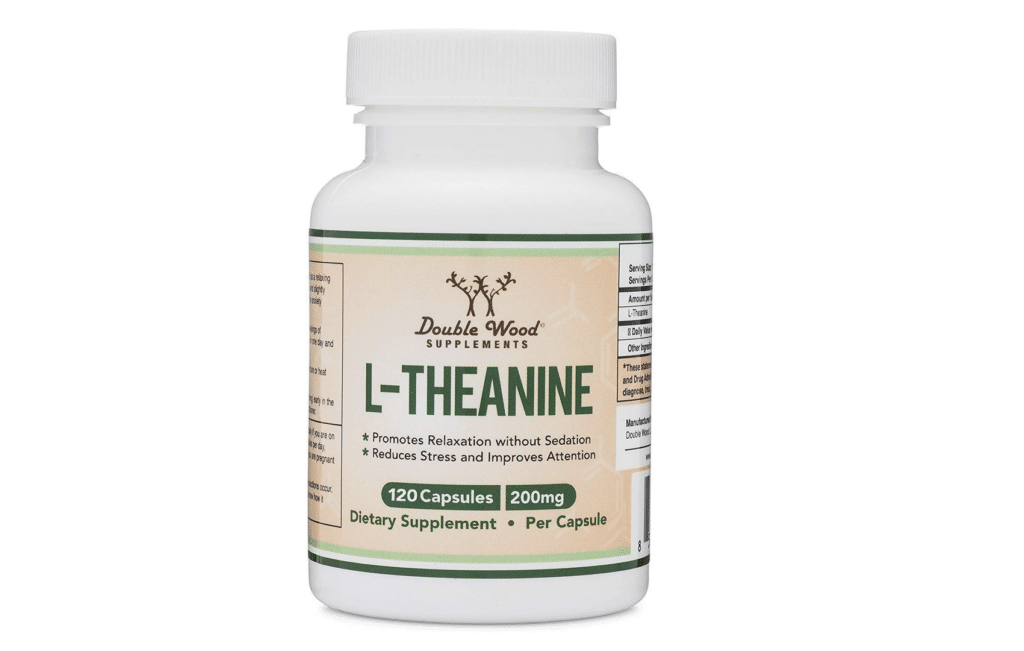
Promotes GABA and Dopamine Production
Double Wood Supplements L-Theanine
L-theanine elevates levels of GABA and dopamine, both neurotransmitters that help us feel good.
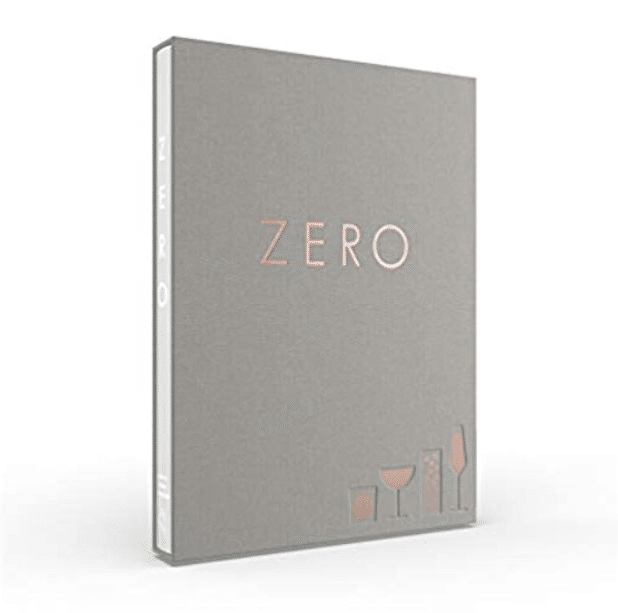
Best Book Available For Non-Alcoholic Drinks
Zero: A New Approach to Non-Alcoholic Drinks – Reserve Edition
This is the world’s most unique guide to alcohol-free drinks and features nearly 100 delicious, flavorful recipes.
As November 2020 approaches, so does an extremely tense presidential election and an autumn resurgence of Covid-19 in the United States. These events follow a long, brutal sequence of polarizing news cycles in a national atmosphere where a not insignificant number of Americans on both sides of the political aisle believe violence is justified if the other side wins. In light of this, it isn’t a stretch to assume that right now is a particularly stressful time live in the US.
The Unwinder’s mission is to provide readers with trustworthy information about how to safely and effectively maintain a healthy lifestyle. Over the course of this year, we’ve been following the news along with everyone, and at the same time, have noted the alarming spikes in liquor sales associated with the pandemic, and other statistics concluding that Americans are drinking more and more.
Though alcohol may relieve stress in the short term, it can have the opposite effect with continual use. As well, the negative health consequences of long-term drinking are well-known. We published this piece to explain and document how alcohol interacts with our physical and mental health—and offer alternative drinks, methods, and practices to drinking.
The Link Between Stress, Anxiety, And Desire to Drink
The link between stress, anxiety, and drinking is well-known. In the short-term, small doses of alcohol are an anxiolytic, meaning they reduce feelings of anxiety. Alcohol does this by reducing activity in the amygdala, a part of the brain that generates fear responses to threats. This is the same neural mechanism that makes people feel more sociable and brave on alcohol.
Unfortunately, the anxiety-reducing properties of alcohol are only temporary, and the “swing back” can be worse than the baseline. This is because alcohol consumption increases cortisol levels over time. Cortisol is a stress hormone that puts the brain in a “fight or flight” state. Normally, cortisol operates on a cycle, where it builds up in early morning hours to get the body ready to wake up and face the day, then declines over the course of the day to allow relaxation and sleep in the evening. (By contrast, another hormone, melatonin, works in the exact opposite cycle, building up in the late afternoon to put you to sleep in the evening, then declining to its lowest point as cortisol peaks in the morning.)
Regular and heavy drinking mess with the cortisol cycle, causing an overall elevation of cortisol, particularly in the morning. This means drinkers wake up feeling more highly aroused, less relaxed, and more stressed. Elevated stress levels create an increased desire to drink, particularly in regular drinkers. Hence, alcohol, stress, and anxiety can form a vicious cycle that is hard to break.
Drinking And Stressful Events
As seen in the infographic above, stressful national events coincide with higher levels of drinking.
Stressful events in general are linked to more drinking. A 2015 study found that economic crises—like recessions or mass layoffs in a community—increase harmful drinking.
Exposure to an intensely stressful event, like being quarantined for the first SARS outbreak, or 9/11, Hurricane Katrina, or Hurricane Rita, is also proven to increase alcohol use.
The early months of the Covid-19 pandemic in the United States generated a rise in heavy drinking by 19% among Americans age 35-59, and 41% among women overall. This increased drinking is set against a broader uptick in drinking in the U.S. over the last 20 years.
The current events of the pandemic and the election in the U.S. certainly qualify as the type of stressful events known to trigger anxiety, stress, and increased drinking. A July, 2020 survey found 35% of respondents qualified for anxiety disorder, up from 8% a year before. Americans are highly stressed about the 2020 election, and 80% of voters believe “things are out of control” in the U.S.
Downsides To Drinking
Alcohol, particularly in excess, has significant short- and long-term negative health effects. In the short term, alcohol use suppresses immune function. Heavy drinkers are more susceptible to respiratory disease. The mechanism by which alcohol damages the immune system is that drinking decreases the activity of three key immune system components: T-Cells, C-Cells, and macrophages. These are the specialized cells that seek out and destroy viruses, bacteria, and other pathogens. These effects are present even with moderate long-term or short-term heavy drinking.
In the short-term, drinking also puts people at increased risk for accidents and bad decision-making. In fact, the rate of alcohol-related emergency room visits have increased by 50% over the last decade.
Over the long-term, the consequences of heavy drinking are well-known. Throat cancer, stomach cancer, cirrhosis of the liver, and cardiovascular disease all have established links to alcohol consumption. Mental health is at risk too, as alcohol use disorders and depression have a causal relationship.
Even for casual, non-heavy drinkers, alcohol can create an “anxiety loop”, where a few too many drinks to relax one night increase morning cortisol levels, which leads to a subsequent feeling of being more stressed or anxious than usual, which leads to a desire for a drink. Particularly in stressful times, this is a very common loop to slip into.
Alcohol Alternatives
There are many ways to replace alcohol. Alternatives to alcohol fall into three main categories:
- Things you can drink instead of alcohol, that still have a celebratory or anti-anxiety effect
- Non-beverage natural supplements that can help relieve stress and anxiety
- Practices and habits that can take the place of drinking
Each of these alcohol alternatives have their benefits and downsides. A non-alcoholic cocktail may taste great and be part of the celebration, but may not be relaxing. Certain alternative drinks like Kava can relieve anxiety, but have their own minor side effects. Supplements like L-Theanine and Rhodiola Rosea are proven to help with stress, but are pills, not drinks. Mindfulness practices are life-changing for many people but require a certain amount of dedication. Overall however, all of these can be considered healthy alternatives to alcohol.
What To Drink Instead Of Alcohol
Kava Vs. Alcohol
The traditional South Pacific herb kava has been enjoyed for ages as a social beverage and in traditional medicine. Kava is most often consumed as a beverage, and kava bars have popped up in many U.S. cities. The active chemical in kava, called kavalactones, has sedative and euphoric effects.
Kava is proven to elevate mood and feelings of well-being, meaning it can serve a similar anti-anxiety function as alcohol. Early research also shows kava improves sleep quality.
Similar to alcohol, over-ingesting kava can cause a sleepy “hungover” feeling in the morning, but the toxicity profile for high-quality kava is lower than that for alcohol. This best kava guide can ensure you are buying high-quality kava. Another small challenge with kava is that it does not taste great, so mixed with something like juice may be the best way to go.
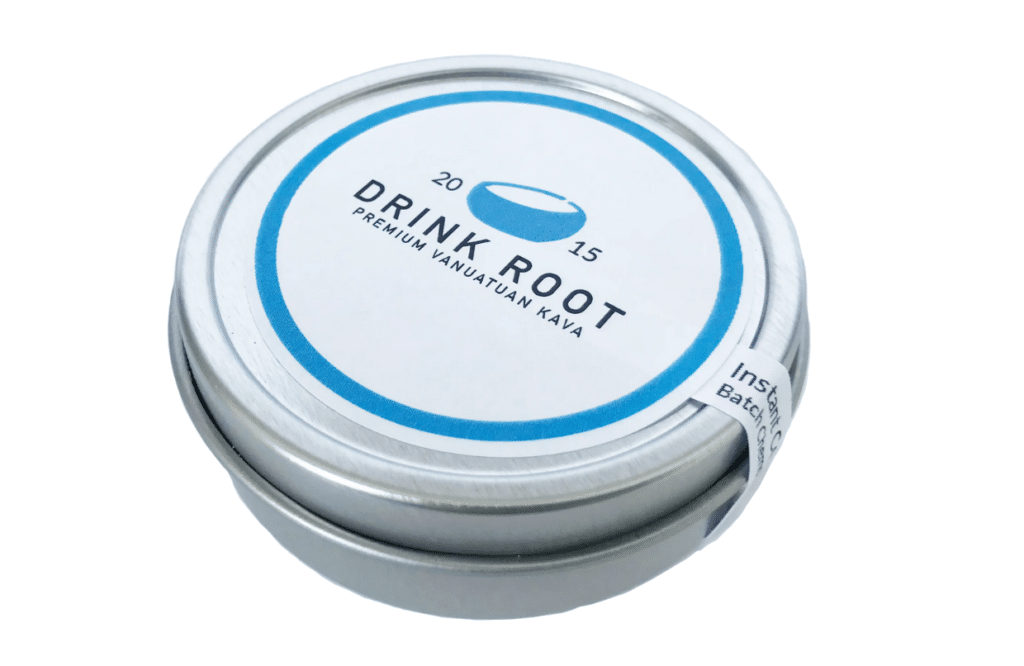
Our recommendation
Drink Root Instant Connoisseur Blend
Straightforward, easy-to-take, and great ingredients
Like many supplements, the kava world is full of sketchy brands with incomplete and unhelpful labeling, dubiously-sourced product, and harsh extraction methods. As far as we can tell, though, Drink Root is NONE of these. In fact, Drink Root is quite the opposite.
Their kava is small-batch and single-origin, and they’ll email you the lab results of the current batch if you email them. Drink Root’s kava is extracted with water, unlike many kava supplements which are extracted with chemical solvents such as ethanol. It’s also just super easy to take—just mix it in water.
That’s more than you can say about a lot of kava products, which require you to make a tea out of the powder with a special strainer. If you’re just getting into kava and want a recommendation, Drink Root’s kava is an excellent, no-nonsense buy to dip your toes in.
Key features:
- Certified organic, and made with water–no solvents
- Pre-brewed and pre-strained
- 50 grams at 6.7-10% kavalactones, or about 25-50 doses for social usage
- “Heady” blend from noble kava
- Single-origin from a small farm on Vanuatu
- Made from whole ground root, not an extract
- Lab-tested
Editor’s note 5/28/22: This product is currently sold out. We will update this review as soon as it becomes available. In the meantime, we recommend purchasing this product in packet form HERE.
Non-Alcoholic Cocktails
The biggest trend in the cocktail industry in the last two years? Non-alcoholic cocktails. Interest in “mocktails” has spiked 42% in 2019-2020, and alcohol-free cocktail bars have opened in cities from New York to Portland. The trend is driven by people realizing that so much of socializing revolves around alcohol, and desiring alternatives to going to the bar. And celebrity chefs are getting in the mix. Grant Achatz, of the world-famous Alinea, released a 250 page book of non-alcoholic cocktails, which he calls “beverage designs”.
Best Non-Alcoholic Cocktails Book

Zero: A New Approach to Non-Alcoholic Drinks – Reserve Edition
This is the world’s most unique guide to alcohol-free drinks and features nearly 100 delicious, flavorful recipes. Each recipe comes with images of what the drink should look like along with clear, step-by-step instructions on how to make the drink. Its beautiful illustrations enhance the overall reading experience and the book is incredibly engaging.
Over 86% of consumers on Amazon rated this book as 5 stars and it’s recently become quite popular within The Unwinder community with those who are looking for alcohol alternatives or want to serve their guests novel drink options.
Best Alcohol Free Spirits
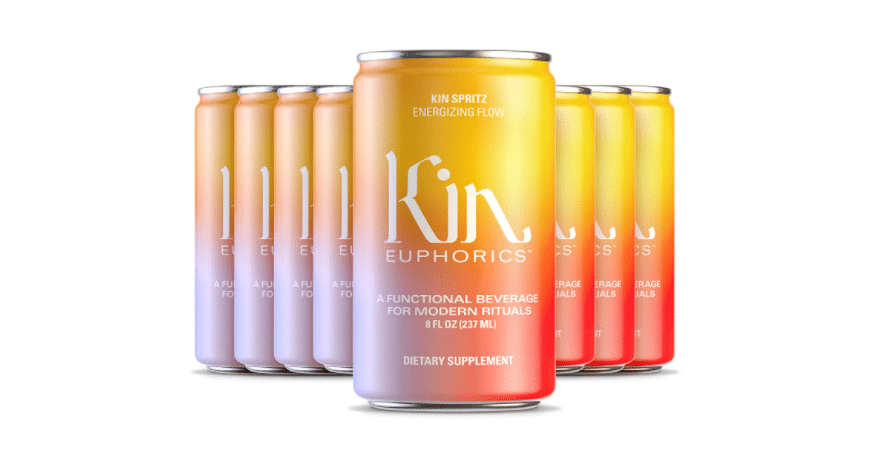
Kin Euphorics
With fun Gen-Z branding and an aesthetic Instagram presence, Kin has been everywhere lately. Their “euphorics” are great tasting drinks that include stress-relieving herbs, like Rhodiola rosea as well as more stimulating, happiness-inducing natural chemicals like GABA and 5-HTP.
The formulations vary, as do the flavors, to add some variety to non-cocktail cocktails. The founder says Kin is meant to feel like “one glass of red wine and a hit of a joint”.
While The Unwinder is more skeptical about the psychological effects Kin Euphorics and other “legal high” products, there is nothing unsafe about this product, and many love the taste and vibe.
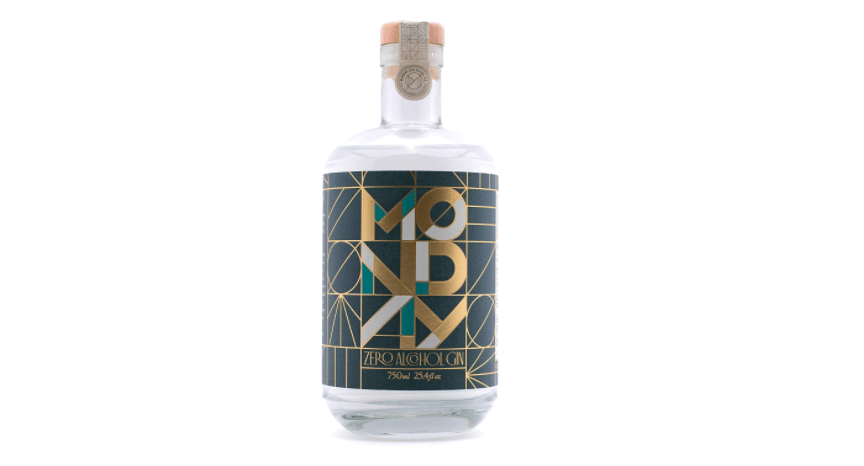
Monday Zero Alcohol Gin
Some alcohols really are about the flavor, and gin falls heavily into that category. Known for the juniper berry scents that make a gin martini taste like nothing else, it is a hard spirit to replace with a non-alcoholic variety.
Monday Gin has done the trick, though, earning high praise from cocktail drinkers and bartenders alike. Their drink provides a perfect stand-in when a martini, G&T, or any other cocktail is needed.
This is a particularly good option for having fun with non-alcoholic drinks without overdoing the sugar.
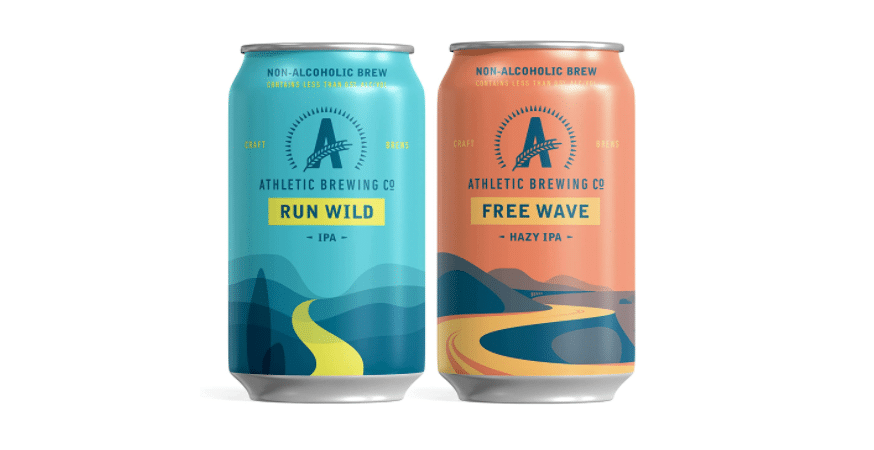
Athletic Brewing Company Non-Alcoholic Beer
For beer-lovers, there are times when only a beer will do. However, past alternatives to drinking beer have felt stodgy—O’Douls, anyone? Fortunately, a new generation of brewers is dedicated to capturing the hoppy flavor of today’s ales and IPAs in an alcohol-free beer.
Athletic Brewing Company is a new leader here, with IPA, golden ale, stout, and Mexican-style beers on tap.
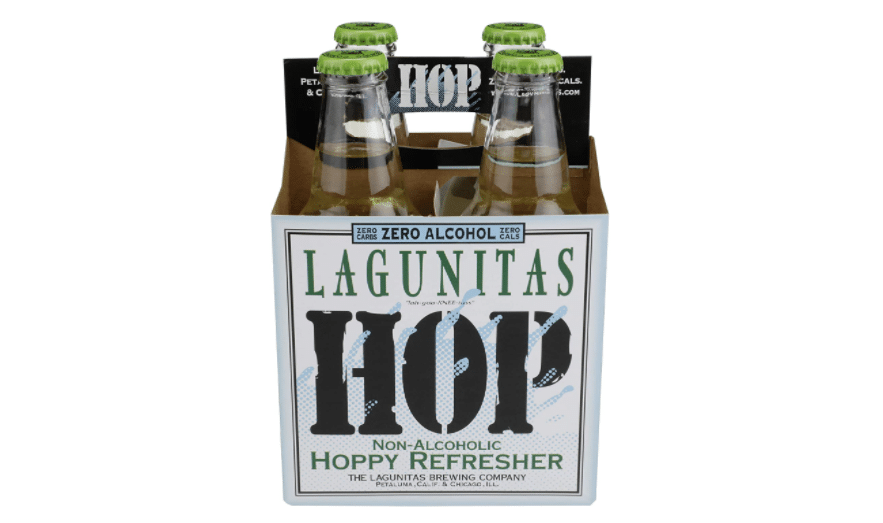
Lagunitas Hoppy Refresher
From Lagunitas, a longtime king of craft brewing, Hoppy Refresher is actually sparkling water with a light hop flavor, bridging refreshment with the fun of beer. These drinks make interesting conversation pieces, and some swear by them.
Hoppy Refresher is a perfect beverage to have on hand when company comes over so that everyone can enjoy an adult-feeling drink without the pressure of alcohol being the only option.
Alternatives To Alcohol For Anxiety: The Best Supplements To Curb Alcohol Cravings
CBD – At this point, it feels like CBD is in everything: CBD lattes, CBD bath bombs, CBD beers. Despite the hype, the science behind CBD is clear. As an adaptogen, CBD (or “cannabidiol”, a non-psychoactive part of the cannabis plant) helps balance the mind-body axis, and has anti-anxiety, anti-pain, and anti-depressant properties. The FTC has approved CBD as a medicine for certain types of treatment-resistant seizures due to its relaxing effect. CBD can be taken for sleep, energy, or managing chronic nerve conditions like sciatica. As an alternative to alcohol for anxiety, properly-dosed CBD provides significant benefits and few drawbacks.

Best Organic CBD
Joy Organics Full Spectrum CBD Tinctures
CBD (or “cannabidiol”, a non-psychoactive part of the cannabis plant) helps balance the mind-body axis and has anti-anxiety, anti-pain, and anti-depressant properties. Joy Organics offers premium CBD oil tinctures that are made entirely of USDA Certified Organic ingredients.
Joy Organics has both full-spectrum (less than 0.3% THC) and broad-spectrum (0.0% THC) options and many of them are flavored. Each tincture provides between 15-30 mg of CBD per serving.

Best CBD Shots
CBDfx CBD Chill Shots 20mg
CBDfx offers quite the alternative to what most people consider to be taking shots. Its CBD Chill Shots contain 20 mg of broad-spectrum CBD along with 200 mg of L-theanine and vitamin B6, magnesium, and zinc to help relax your mind and body, minus the hangover and dehydration that typically ensues.
You can choose between lemonade and berry as the flavors for this product.
Rhodiola Rosea – Rhodiola rosea is growing in popularity; as seen above, it is a key ingredient in Kin Euphorics. This flowering plant root has substantial early evidence as a stress-reducer, and is also shown to reduce fatigue. Similar to CBD, rhodiola rosea is an adaptogen, meaning it helps the brain adapt to stressors. However, the best Rhodiola Rosea brands contain adequate levels of both rosavins and salidroside, so make sure to research before buying.

Our recommendation
Nootropics Depot Rhodiola Rosea Capsules
These Rhodiola rosea capsules have the exact concentration you’re looking for in a supplement – 3% rosavins / 1% salidrosides.
Each bottle contains 60 or 120 capsules, with each capsule providing 500 mg of Rhodiola rosea.
The capsules are made with cellulose, making this product vegan-friendly.
L-Theanine – while there are L-theanine skeptics, the bulk of the research indicates benefits. L-theanine is the ingredient that gives green tea its soothing effect versus, say, coffee. L-theanine, and it’s cousin suntheanine, elevate levels of GABA and dopamine, both neurotransmitters that help us feel good. A study found that suntheanine mixed with water reduced levels of anxiety while performing a stressful task. L-theanine has few side effects, but like any herbal supplement, it is best to talk with a doctor before starting a heavy regime.

Promotes GABA and Dopamine Production
Double Wood Supplements L-Theanine
L-theanine elevates levels of GABA and dopamine,
Products by Double Wood Supplements are made in the USA, 3rd-party lab tested, and are manufactured in a GMP facility. We recommend their products whenever we have the opportunity.
This product comes with 120 capsules, each containing 200 mg of L-theanine.
However, these capsules are made with gelatin, making them unfit for vegans or vegetarians.
Other Options For Relaxing Without Alcohol: Cognitive Behavioral Therapy Techniques For Retraining Your Brain
Reframing
One of the most powerful, proven methods to replace alcohol is a type of self-administered cognitive-behavioral therapy. By interrogating our beliefs about alcohol, and comparing them to our underlying behaviors, values, and goals, we can often re-orient alcohol to a healthier place in our lives. The Unwinder has written at length about reframing alcohol here.
Mindfulness & Meditation
Great Buddhist monks can slow and speed their own heart rate, slow their metabolism, and not eat or move for days. Such is the power human beings can have over their minds. Of course, this takes years or decades of dedicated practice, and most of us can’t pack up for a Tibetan monastery tomorrow. That doesn‘t mean that a mindfulness or meditation practice still can’t be life-changing, especially when using meditation in lieu of unhealthy practices like heavy drinking. By learning how to observe our own racing thoughts, and let the negative energy go, mindfulness can teach coping with anxiety and stress in a lasting way.
Exercise & Yoga
Exercise is proven to relieve anxiety. Yoga combines exercise with certain mindfulness practices like breathwork. Exercise is also proven to reduce drinking: a study shows that 30 minutes of low-intensity exercise decreased the urge to drink alcohol by 18 percent. There is actually less difference than you’d think between grabbing a drink and grabbing a workout at the end of the day. Both leave you feeling less stressed, more relaxed, more proud, and less fearful. And exercise won’t leave you with a hangover—only some sore (but toned!) muscles in the morning.
Quitting Drinking Altogether
If you feel like alcohol is a real issue that’s negatively affecting you to the extent that you’d just be better off without it, then of course you might consider quitting alcohol instead of replacing it.
And given all the downsides to drinking, and the anxiety cycle it can put you into, we’d be remiss if we didn’t discuss quitting. And in the right frame of mind, quitting drinking might not be as difficult as you’ve been taught to believe.
We suggest reading Alan Carr’s Quit Drinking Without Willpower. Carr’s argument, on which we’ve published a fairly in-depth piece, essentially breaks the project of quitting drinking into four propositions:
- Drinking isn’t fun or relaxing
- Instead, drinking inhibits fun and increases anxiety
- If quitting drinking is just about resisting temptation, you’re doomed to failure or misery
- Quitting alcohol isn’t about resisting temptation after you realize there are only downsides to drinking
Quit Drinking Without Willpower makes the case for each of these claims quite brutally, in less than two hundred pages. Carr argues that drinking is neither fun nor relaxing because the effects of alcohol intoxication, for example decreased verbal fluency, memory loss, confusion, impaired judgment, stupor, and hangover, are unpleasant. He also writes that the ‘willpower method’ of quitting alcohol is flawed because it requires you to resist temptation for the rest of your life or succumb to drinking again. Also, the ‘willpower method’ assumes drinking alcohol is awesome, an assumption Carr rejects outright.
Again, for unofficial cliffnotes on the book, check out our piece here.
Alcohol Alternatives Infographic Text
The Pandemic And The Election Have Americans Drinking Too Much
- The Pandemic Has Elevated Alcohol Use:
- Alcohol consumption among adults age 30-59 increased 19% since just before the pandemic.
- Heavy drinking by women increased +41%
- This effect is particularly pronounced amongst millennials, women, minorities, and those who have lost their job due to Covid-19
- At Home Alcohol Sales Spiked And Remain High
- 54% spike in at-home alcohol sales in beginning of pandemic
- At home alcohol sales still up 27% through June
- This Is Part Of A Larger Trend
- Alcohol consumption has been rising in the U.S. for over a decade
- Sales of alcohol in the U.S. has increased significantly since 2010
- Stressful Events Increase Drinking
- Crises are proven to increase drinking, particularly in men
- People who were quarantined during the original SARS epidemic showed higher alcohol abuse disorder rates, 3 years later
- Alcohol use also increased in the wake of 9/11, Katrina, and Hurricane Rita
- This Is A Stressful Time
- In 2020, 35% of American adults present symptoms of anxiety disorder, up from 8% a year ago
- The Election Will Increase Drinking Even More
- After the 2016 election, Drizly, an alcohol delivery company, saw an 86% spike in sales, with hard liquor orders increasing as the night went on
- Americans are more stressed about the 2020 election than they were in 2016
- Increased Drinking, Even For A Short Period, Has Negative Health Effects
- Excessive alcohol use suppresses immune function, including increased susceptibility to respiratory disease
- In the short term, drinking decreases the activity of three key immune system components: T-Cells, C-Cells, and macrophages
- Heavy drinking is proven to raise cortisol levels and overall feelings of stress and anxiety, a cycle which can lead to more drinking
- Alternatives To Alcohol
- There are many options for drinking less, or not drinking at all. These include less harmful substances, anxiety-reducing practices, a thriving non-alcoholic cocktail scene, and other ways to have fun.
- Alcohol alternatives include CBD, kava, and adaptogens
- Anti-anxiety practices include yoga, meditation, and journaling
- Other ways to have fun include alcohol-free cocktails, games and exercise, and time with friends